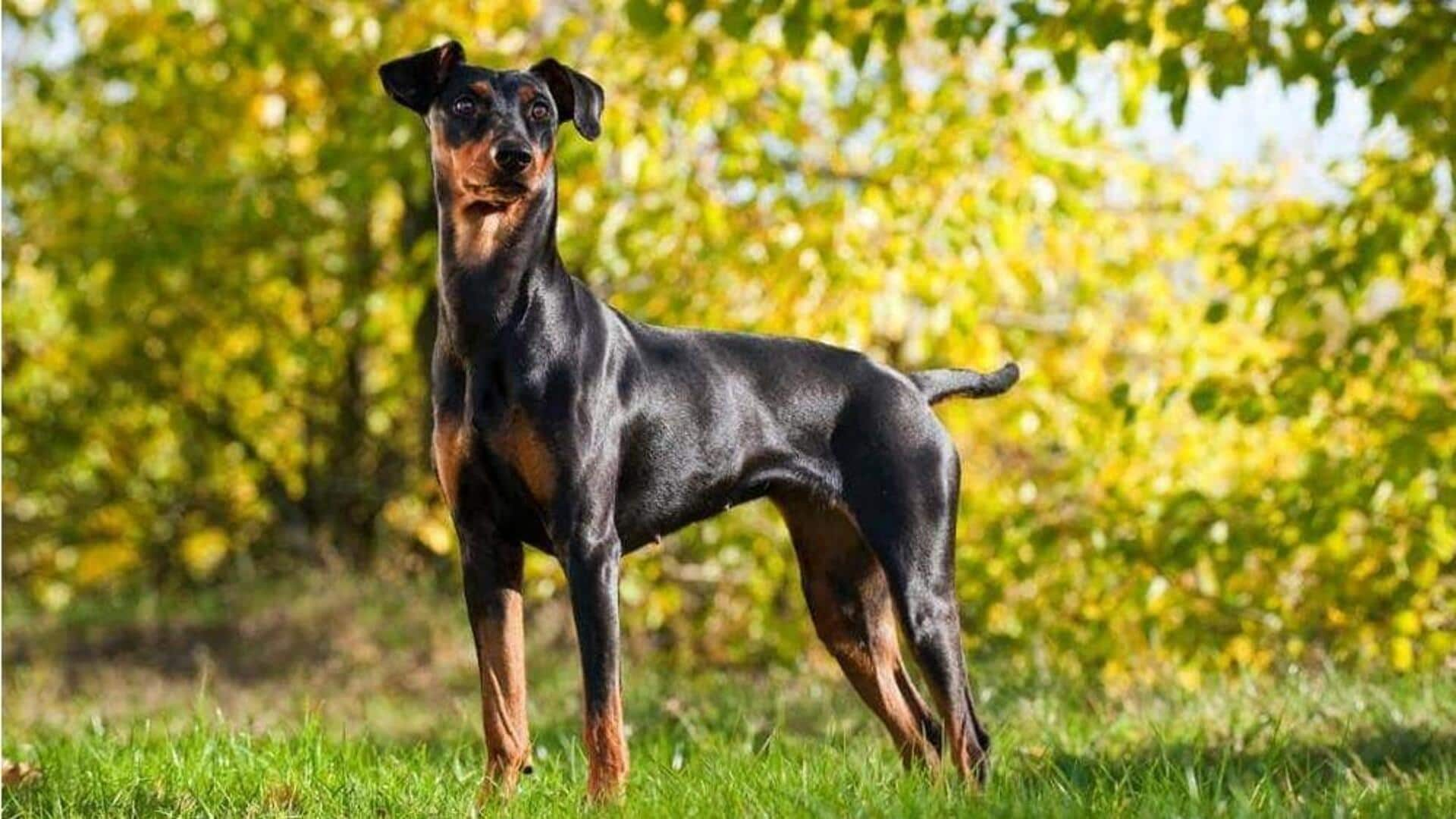
German Pinscher care tips: Food, training, grooming, and socialization
What's the story
The German Pinscher, a sleek and intelligent breed, is one of Germany's oldest and serves as the prototype for other pinscher breeds. Originally used as a rat catcher, this energetic canine can be trained for various tasks. If you have a German Pinscher at home, you need to know how to take proper care of them. These tips will help.
Tip 1
Nutrition
A well-balanced diet is essential for your German Pinscher's overall health and well-being. Provide high-quality dog food that meets their nutritional needs, considering their age, size, and activity level. Avoid feeding table scraps or human food, as some ingredients may be harmful to your dog. Consult your veterinarian for specific dietary recommendations and portion sizes.
Tip 2
Training
German Pinschers are intelligent and eager to learn, making them highly trainable. Establish a consistent training routine using positive reinforcement techniques, such as praise and treats. Start with basic obedience commands like "sit," "stay," and "come," gradually progressing to more advanced skills. Remember to be patient and persistent, as this breed can be stubborn at times.
Tip 3
Grooming
The German Pinscher's short coat requires minimal grooming. Brush their coat weekly with a soft-bristle brush or grooming mitt to remove loose hair and distribute natural oils. Bathe your dog only when necessary, using a mild dog shampoo to avoid skin irritation. Regularly check and clean their ears, trim their nails, and brush their teeth to maintain good hygiene.
Tip 4
Socializing
German pinschers have a prey drive, which may cause them to pursue smaller creatures. Otherwise, they may coexist with other pets if properly socialized. Expose your dog to various people, animals, and environments from an early age to help them become well-adjusted adults. Regular walks and visits to dog parks will also provide opportunities for social interaction and mental stimulation.